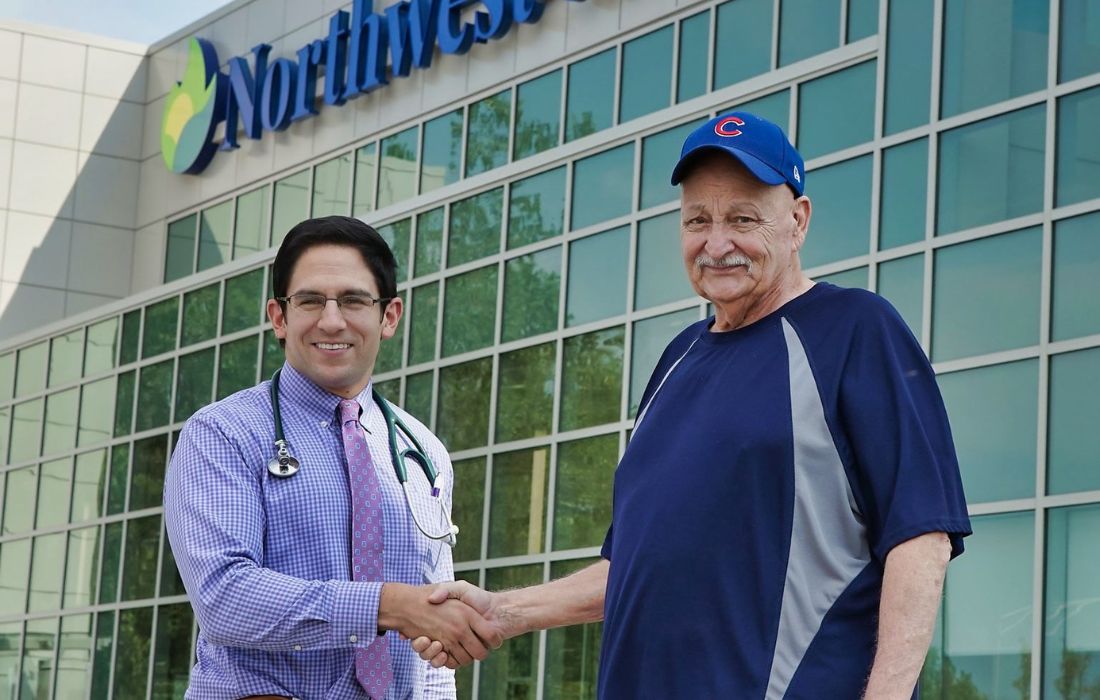Jan Majszak – Stage 4 Breast Cancer
April 30, 2020

When you live in a small town, it’s not too easy to find a doctor, and that’s pretty scary when you’re diagnosed with cancer. I’m so grateful to have the doctors at Northwest Cancer Center in Dyer. I’m originally from Northwest Indiana and two of my sons still live there, so I stay with them when I come for appointments and treatment.
Green is happy to make the trip because he said the doctors, nurses, and staff at Northwest Cancer Center are fantastic, and he’s thankful for their care.
In 2015, Green was scheduled to have the second of two knee surgeries, but the physician who conducted his pre-op tests found that Green’s white blood cell count was elevated. He had the surgery, but because his white blood count remained high, his family doctor conducted more tests. Green was then sent to Northwest Cancer Center, where he is under the care of Dr. Michael Tallarico, a board-certified hematologist and medical oncologist.
Dr. Tallarico monitored Green’s white blood count, which initially led to a diagnosis of Chronic Lymphocytic Leukemia (CLL) a cancer, which the American Cancer Society defines as “the most common leukemia in adults.” CLL starts in cells that become certain white blood cells (called lymphocytes) in the bone marrow and then move into the blood. In CLL, the leukemia cells often build up slowly, symptoms may not manifest for a few years, and over time, the cells grow and metastasize to other parts of the body, including the lymph nodes, spleen, and liver. With this diagnosis, Dr. Tallarico suspected that Green had had CLL for a while and said that as long as the disease was in a manageable range, Green could live with it without treatment.
As time went on, Green’s white blood cell count shot up to 65,000, while normal results for a man his age is a range between 4,000 and 11,000 per microliter of blood.
“Larry was getting pretty ill for a diagnosis of CLL,” said Dr. Tallarico. “He suffered from fatigue, significant weight loss, and night sweats.”
After further testing, Green’s diagnosis was revised to Mantle Cell Lymphoma (MCL), which according to lymphoma.org, is “an aggressive, rare form of Non- Hodgkin’s Lymphoma (NHL)” and afflicts about six percent of all U.S. NHL cases. MCL is often diagnosed at a later stage of the disease and tends to affect the gastrointestinal tract and bone marrow. Dr. Tallarico said that the new diagnosis changed the frontline treatment. Green began chemotherapy treatment in early 2019, which included infusions of Bendamustine and Rituximab. Green had an infusion reaction from Rituximab, which put him in the hospital, so Dr. Tallarico tailored the dose for the specific reaction to make sure he received optimal therapy with limited side effects. Green endured chemotherapy treatment twice per month for seven months to try to get his blood count down to normal.
Between treatments, Green had a bone marrow scan and PET scan, and the PET scan revealed an abnormality in his colon.
“When the PET scan showed something amiss, I suspected colon issues,” explained Dr. Tallarico. “He hadn’t had a coloscopy in many years, so I wanted to test him.”
He was sent for a colonoscopy, where polyps were removed, including one that was cancerous. Dr. Tallarico recommended surgery when Green finished chemotherapy, and his white blood count normalized. Surgeons removed 16” of Green’s colon and 22 lymph nodes to test in August 2019. One lymph node was found to be cancerous.
In addition to MCL, according to Dr. Tallarico, Green was diagnosed with Stage 3A Colon Cancer, with the cancer completely removed. Dr. Tallarico determined that the medical protocol for this condition is just three months of chemotherapy treatment after Green heals, which include two drugs: Xeloda and Oxaliplatin, which is one pill and one infusion. Green is now recovering from surgery, and Dr. Tallarico said there’s a “huge chance” of curing the colon cancer, and his MCL is currently in remission.
Green and his wife Diane are retired. He said that she and their three sons have been helpful and supportive.
“Now it’s a matter of taking one day at a time,” said Green. “I’m very comforted that Dr.Tallarico has connections with doctors in Chicago, so he is always up to date on the latest medical information.”
Dr. Tallarico was trained at the University of Chicago and has done extensive research, especially in blood disorders and geriatric cancer. He has been published in several journals and presented a study on chemotherapy in older patients with blood disorders, that received an award at the National ASH (American Society of Hematology) conference.
“Northwest Cancer Center provides the same level of care as university hospitals in Chicago, but you don’t have to travel. The best thing about having this care in your backyard is that it makes it easier on patients who might have a reaction to the disease or treatment,” said Dr. Tallarico. “We have a close-knit staff who knows and cares about our patients.”
“We know that a cancer diagnosis is shocking, which is why we offer newly diagnosed and second opinion appointments within 24 hours. We want to help alleviate as much stress as possible.”
Northwest Cancer Center’s new state-of-the-art cancer center also provides homeopathic and integrative care for patients with cancer. A certified Nurse Practitioner specializing in homeopathic and integrative care provides natural tools to help patients manage cancer treatment side effects. This is unique for local practices and also unique in that the Northwest Cancer Center offers the most clinical trials in the area.
April 30, 2020
April 30, 2020
April 30, 2020